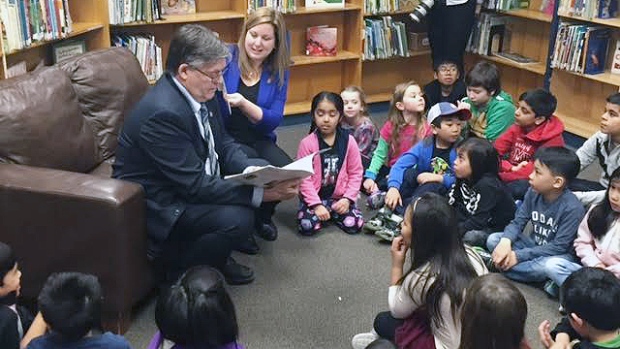Canadá/Febrero de 2017/Fuente: CBC News
RESUMEN: La educación de Kindergarten al 12º grado en Manitoba está recibiendo un aumento en el financiamiento, pero los críticos dicen que el aumento del uno por ciento no está manteniendo los costos de la educación. El gobierno de Manitoba anunció el miércoles un aumento de $ 13.1 millones de dólares para las escuelas públicas, lo que mantendrá el presupuesto general en alrededor de $ 1.3 mil millones. Eso es un aumento del uno por ciento – ligeramente menor que la tasa de inflación, que el Banco de Canadá informó fue de 1,1 por ciento para Manitoba en 2016. El crítico de la Oposición a la Educación Wab Kinew (Fort Rouge) dijo que el costo de la educación se espera que suba alrededor de dos por ciento este año. Él llamó a la provincia un 1% de aumento de la financiación de un «corte de facto». «No vamos a cortar el camino para salir de los desafíos y oportunidades que enfrentamos», dijo Kinew. «Estas son las personas que están ayudando a plantar las semillas del futuro de nuestra provincia». El ministro de Educación y Capacitación de Manitoba, Ian Wishart, dijo que sigue siendo un aumento en los tiempos financieros difíciles, aunque las divisiones escolares tendrán que presionar para ofrecer educación, enfrentar el aumento de los costos salariales y no aumentar los impuestos.
Kindergarten to Grade 12 education in Manitoba is getting a funding boost, but critics say the one per cent increase isn’t keeping up with the costs of delivering education.
The Manitoba government announced Wednesday a $13.1-million funding increase for public schools, which will keep the overall budget at about $1.3 billion.
That’s a one per cent increase — slightly less than the rate of inflation, which the Bank of Canada reported was 1.1 per cent for Manitoba in 2016.
Opposition Education critic Wab Kinew (Fort Rouge) said the cost of education is expected to go up about two per cent this year. He called the province’s one per cent funding increase a «de facto cut.»
«We’re not going to cut our way out of the challenges and opportunities we face,» Kinew said. «These are the people who are helping to plant the seeds of our province’s future.»
Manitoba Education and Training Minister Ian Wishart said it is still an increase in tough financial times, although school divisions will face pressure to deliver education, meet rising salary costs and not raise taxes.
School divisions must be fiscally prudent because in the end «there is only one taxpayer,» Wishart said.
Changes in programming to improve outcomes in math and reading, where Manitoba is on the bottom of national lists, will be paid for out of existing budgets, and announcements about those efforts will be made later in the year, he said.
The province will also announce any decisions on building new schools later this year, Wishart said.
Property taxpayers to foot bill: WSD
Sherri Rollins, chair of the Winnipeg School Division, agreed with Kinew that the small funding increase amounts to a cut to education.
She said boards will have to rely more on municipal taxpayers to close the funding gap and pay for costs like teacher salaries and utility bills that will rise faster than one per cent this year.
«It is the property taxpayers that need to foot 40 to 50 per cent of the bill … I think that’s what the province is saying today,» said Rollins.
The Winnipeg School Division faces expenses of roughly $400 million this year, she said, and that means it will have to look at property taxpayers for about $187 million of that funding.
Rollins said neighbourhoods in her division are some of the poorest in Canada and children in those areas often need extra supports like before- and after-school programming, along with homework clubs to succeed.
This is a time when school funding should be increasing, she said, to close achievement gaps.
«Definitely this is not the time to have funding that looks like the 1990s,» she said.
Fuente: http://www.cbc.ca/news/canada/manitoba/education-funding-increase-manitoba-1.3961547








 Users Today : 18
Users Today : 18 Total Users : 35460321
Total Users : 35460321 Views Today : 22
Views Today : 22 Total views : 3419050
Total views : 3419050